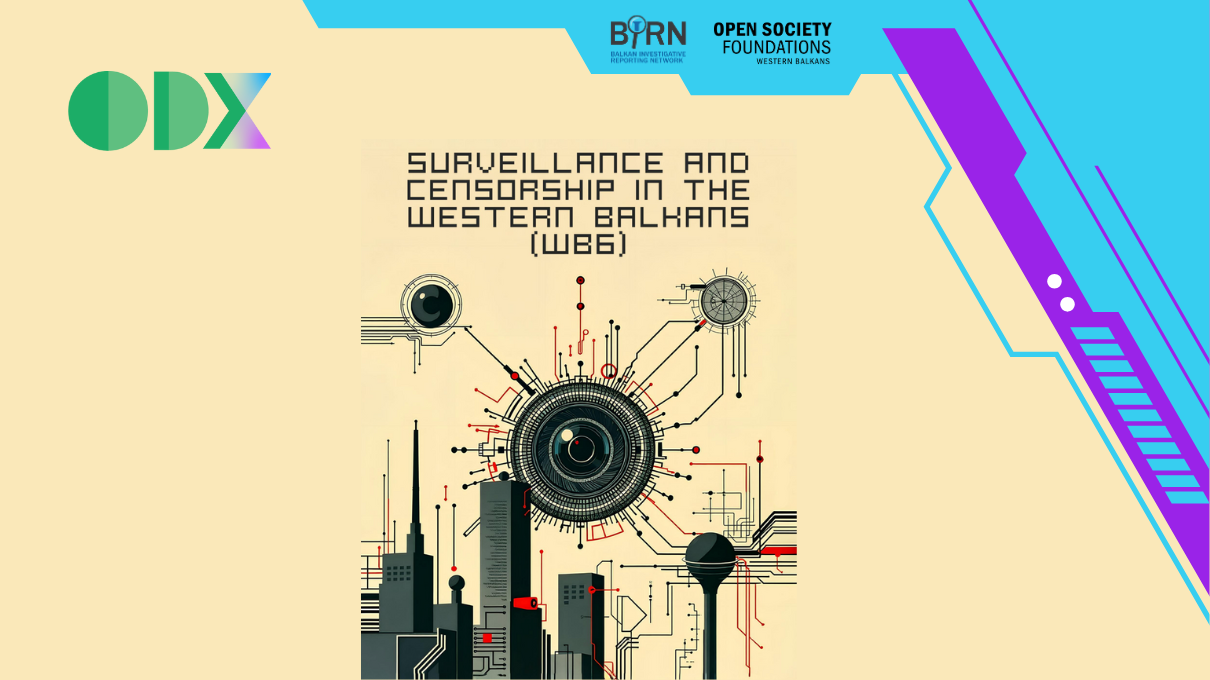Surveillance and Censorship in Western Balkans (WB6)
Biometric surveillance and facial recognition technologies are expanding rapidly across the Balkans, raising serious privacy and ethical concerns, particularly in Albania, Kosovo, Montenegro and Serbia, a report published by BIRN on Tuesday says.
Governments in the region increasingly use spyware, digital censorship and legal harassment to target journalists, activists, and minority voices, suppressing free expression and democratic engagement. Efforts to control digital narratives, like Albania’s TikTok ban and Serbia’s pervasive surveillance, further threaten civil liberties and press freedom.
The report primarily focuses on developments up to and including 2024, but it also incorporates recent cases from early 2025 that represent a continuation of alarming trends identified last year, reflecting the evolving nature of digital surveillance and censorship across the region.
In the Western Balkans six, WB6, the report says, legal frameworks around surveillance and censorship are often aligned with EU standards – but face gaps in practice, leading to weak protections for freedom of expression, privacy and digital rights.
While Albania and Kosovo have laws protecting digital rights, weak enforcement and vague provisions allow for government overreach. Bosnia and Herzegovina has seen media freedom regress, particularly in the Republika Srpska entity.
Montenegro has outdated data protection laws and North Macedonia has delayed enforcing digital rights. Serbia’s implementation of EU-aligned laws is hindered by politicised institutions, unregulated surveillance and proposed legal amendments threatening press freedom.
Emerging trends in the use of biometric surveillance and facial recognition technologies are becoming increasingly prevalent across the Balkans, with notable developments in Albania, Kosovo, Montenegro and Serbia, each raising significant privacy and ethical concerns.
Projects like Albania’s “Smart City” and the secret acquisitions of such technology in Montenegro highlight issues of transparency and data misuse. In Serbia, the widespread deployment of facial recognition without legal safeguards has sparked fears of unlawful surveillance and state overreach. Kosovo’s opaque surveillance practices further complicate the regional landscape.
Serbia has witnessed troubling instances of spyware, notably the Pegasus tool, being used against civil society, journalists, and activists. In several cases, including attacks on BIRN journalists, spyware was used to secretly infiltrate devices, violating privacy and press freedom. Despite calls for accountability, the government has not responded, further raising concerns about the growing use of digital surveillance to suppress dissent and silence critical voices.
Across the Balkans, journalists, human rights defenders and activists face increasing digital censorship, surveillance and legal harassment, as governments and other powerful actors seek to suppress critical voices. These challenges are visible in all countries where media outlets and individuals are targeted through online harassment, surveillance, legal action and manipulation of the media narrative.
Megi Reci, BIRN Digital Rights Programme Research Lead, and one of the authors of the report, emphasized how Bosnia’s illegal wiretapping scandal, Serbia’s spyware targeting and North Macedonia’s legacy of unchecked surveillance all point to a broader trend of surveillance and censorship.
“Across the region, surveillance technologies meant to ensure security are increasingly weaponised to stifle dissent and control public discourse. Often, surveillance and censorship go hand in hand,” said Reci.
“In Serbia, the pervasive fear of being watched leads to widespread self-censorship, while in Albania, tools used to block platforms have sparked concerns that they may also serve as instruments of surveillance,” she added.
Independent journalists and human rights defenders in the Balkans face threats including online harassment, surveillance and legal challenges. In Albania, the government uses security laws to restrict online content, while in Bosnia, defamation laws are used to target journalists.
Kosovo’s lack of transparency fuels self-censorship, and Montenegro has seen surveillance scandals targeting journalists. In Serbia, government surveillance, including spyware, suppresses free expression, with state control over the media narrative. Across the region, these actions undermine press freedom and stifle democratic engagement.
In March 2025, Albania imposed a one-year TikTok ban, citing concerns over violent content following a fatal incident. The ban has been criticised for lacking transparency and raising digital rights and free speech concerns. Critics, including media groups, have suggested alternative measures such as content moderation instead of a ban, and the use of Deep Packet Inspection (DPI) tools to enforce the ban raises fears of mass surveillance and privacy violations.
In Serbia, government control over digital platforms and informal tactics, like intimidating interviews, limit free expression, particularly targeting journalists, activists and opposition figures.
As surveillance and censorship practices grow more sophisticated, the need for independent actors that will investigate, monitor, document and report violations becomes ever more critical, Reci said.
“Exposing how power is wielded behind closed doors helps protect not just individual rights, but the very spaces where dissent, debate, and accountability can exist,” Reci added.
Read the full report here.
